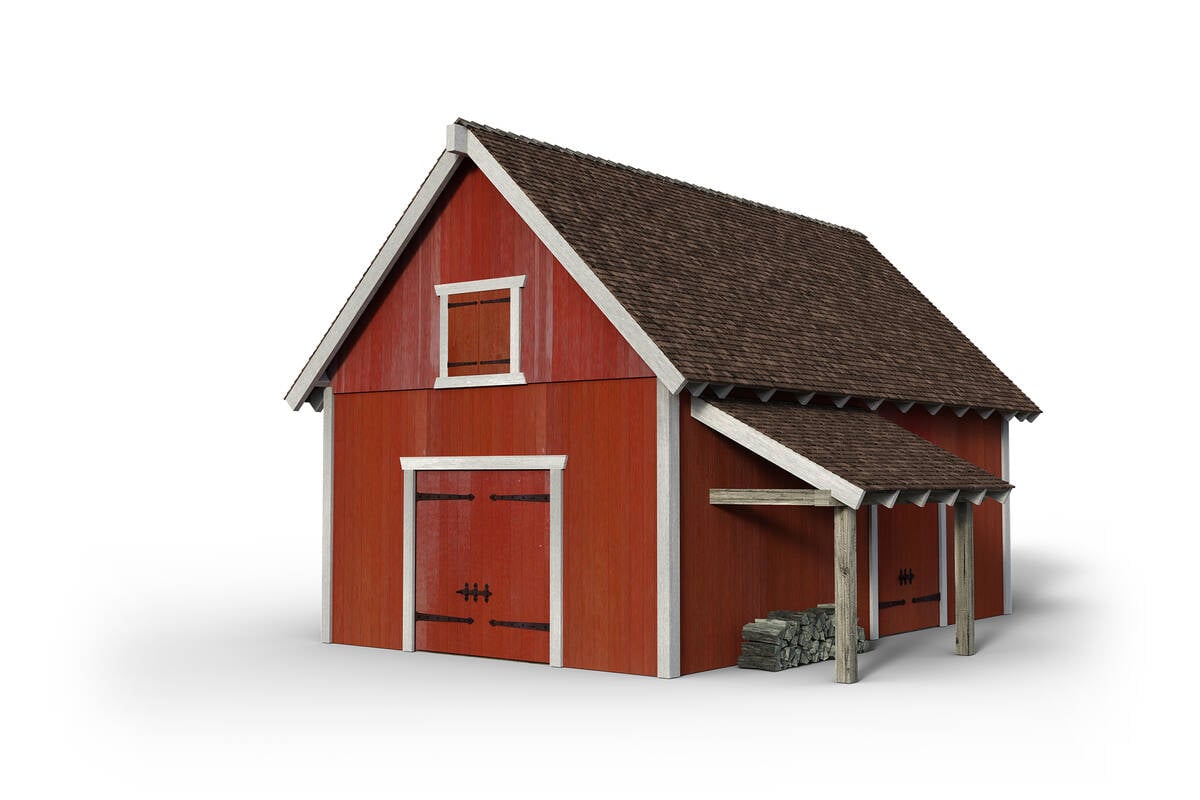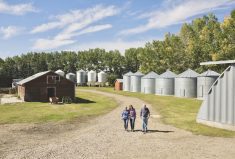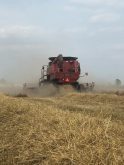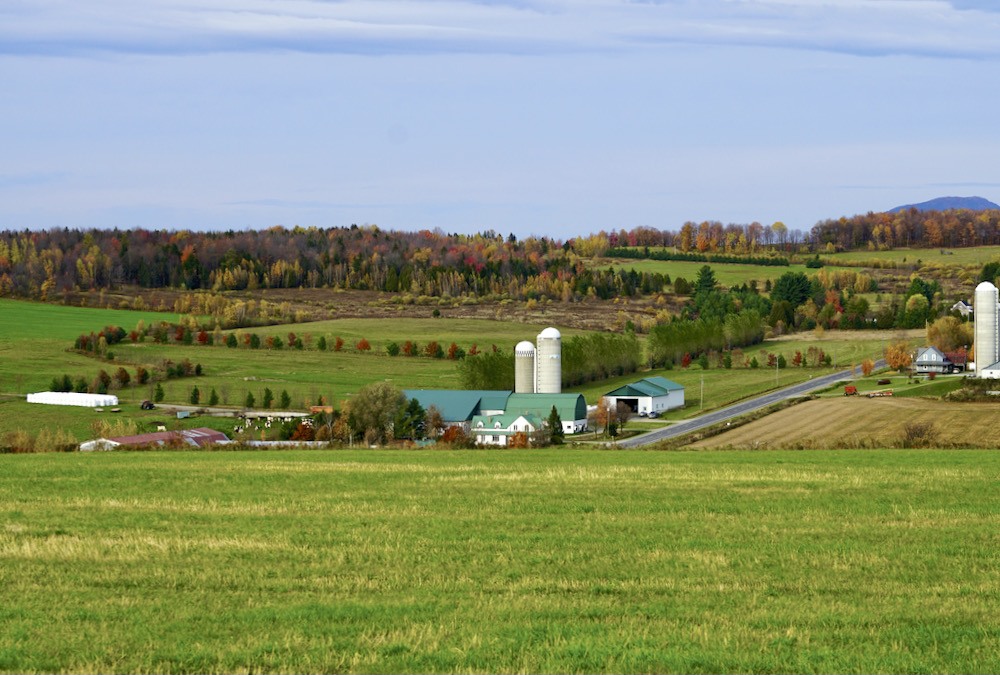It’s a fact that with life comes death, and almost all of us know of someone who died unexpectedly as a result of an accident or illness, leaving their families to pick up the pieces.
Lacey Frizzell of Barrie, Ont., was still in university when her mom died. Her mother had been the bookkeeper for the farm and the family trucking business and Frizzell says the family had the difficult task of sorting through banking, insurance, tax and other financial records during a time of intense grief. This made a difficult time even more difficult.
Seeing ways to prevent other families from experiencing this added burden following a death, divorce or catastrophe, Frizzell, who has an ag business degree from the University of Guelph and has worked for 20 years in commercial lending, started a professional organizing business called Simply Lavish Transitions.
Read Also

When hackers hit the barn
As Canadian farmers embrace automation, cybersecurity is the new front line. Here’s how to protect your on-farm data from digital threats.
Using a Life Binder that she developed, Frizzell helps families get all their important papers and contacts organized. Typically, these binders (also available through financial advisers) are a place to store important details.
There are a lot of those details, including:
• insurance, banking and tax info
• wills, power of attorney, health care directives and other instructions
• passwords, budgets and inventory lists, shareholder, partnership, transition agreements
• leases and deeds; supplier or vendor lists
• medical files; and doctor, accountant, legal and emergency contacts
Getting this information together can feel overwhelming, says Frizzell, especially since it typically involves a combination of digital and paper files. By serving as an accountability partner, she says she can help break the process down into more manageable chunks.
Frizzell emphasizes the importance of having up-to-date and signed legal documents such as your will. If you don’t have a will, the laws in your province or territory will determine how your estate is divided.
The best advice, farm advisors say, is to get professional legal help to ensure all your documents are prepared and witnessed properly.
Boissevain, Manitoba farm family coach Elaine Froese is blunt about it. “Just get it done,” she says.
Then share the details of your will and the location of the original with family members and executors so there are no surprises.
If you have pre-planned your funeral, this information can be stored in your Life Binder along with any wishes you have regarding your funeral.
Montreal’s Kathe Lieber is resolved to leave an orderly house and good records for her daughter who lives across the Atlantic. “I have made my will and mandate and arranged for my cremation. This will be my final gift to my daughter,” she says.
Like Lieber, Gary Draper of Kitchener, Ont., is thinking ahead. Realizing that we are “temporary possessors of our possessions,” the retired University of Waterloo English professor donated his collection of more than 1,700 Canadian cookbooks to the University of Guelph last November.
Published between 1881 and 1960, the collection includes booklets produced by the government, the dairy board, appliance manufacturers, and flour companies as well as community cookbooks. They were purchased one by one over a 30-year period from thrift stores, flea markets, old paper shows, used book stores, and eBay. Draper says many of them are rare and can tell us a lot about the time period when they were published.
While Draper enjoyed being able to hold the books in his hands, he did not want to burden his loved ones with finding a home for them after his death. With no family members interested in the books, the University of Guelph, which already had a large collection of Canadian cookbooks, was a logical repository for the collection.
Another benefit of choosing the University of Guelph is that Draper lives close enough to still be able to access the books when he wants to.
While his original intention was to leave the collection to the university in his will, he knows the books are better off in the library now as it has ideal storage conditions. While he misses the books, Draper takes comfort knowing that students and the public are now able to access them.
“If I had sold the collection, it would not feel nearly as good,” he says.
University of Minnesota professor, Dr. Marlene Stum, applauds people who plan ahead for the dispersal of personal possessions as Draper is doing. Her 25 years of research shows “many more conflicts arise when decisions aren’t made in advance.”
By being proactive, Stum says “there are more options in terms of what and how you might distribute items. Your heirs will know what you want, you can gift some things, you can share stories and it also takes a lot of the burden off the executor.”
Stum recommends considering several questions before you begin the process of deciding who should get what. What is it that you hope to accomplish? If you have a co-owner, such as a spouse, do you know what is most important to him or her when transferring mutual personal property? Have you taken time to think about, share and discuss your transfer goals?
Stum highlights some of the places where the process can go awry causing hurt feelings. Some family members may have strong emotional attachments to some objects and some items may also have significant financial value. “Assuming such decisions are unimportant or trivial can lead to misunderstandings,” she says.
Family members can also have different ideas about what’s fair. “People often assume fair means equal but it is not possible to divide possessions equally,” explains Stum.
Transparency and communication are essential. Stum recommends asking family members to identify which items have special meaning to them. “People are often surprised at the answers to that question. Getting the issue on the table will help minimize inaccurate assumptions about who should get what.”
Stum has developed many useful resources based on her research. These include a workbook, a video and tips sheets. (See: Resources below.)
Another section of your Life Binder could include what is called an ethical will or legacy letter. Ethical wills are a means of sharing your values, beliefs and life lessons with your descendants.
Stéphanie Côté, co-owner of funeral service provider Voluntas Commemoration inc. in Dollard-des-Ormeaux, Québec, says an ethical will “contains the essence of our life, related in a simple and personal way.”
Easier than writing a memoir or autobiography, Côté says most of her clients can complete the ethical will template that her firm provides in just four to eight hours.
Templates are also available online. Some typical sections include personal history, family stories, achievements, life lessons learned, values and beliefs, your greatest pride, regrets, and expressions of love and gratitude.
“An ethical will is an opportunity to share our life experiences and lessons with those we love.” says “It allows us to live in their memory by presenting them with a precious legacy.”
Resources
There are a lot of resources on the University of Minnesota extension website including a video called Who Gets Grandma’s Yellow Pie Plate? www.youtube.com/watchv=z3NNoVRQpI8&ab_channel=UMNExtensionFamilyDevelopment
“Because I love you” list by Maggie Van Camp loft32.ca/uncategorized/farm-succession-planningbecause- i-love-you-list/
Book by Beth LaMie: Legacy Letters from Your Heart: How to Find Peace of Mind by Leaving a Piece of Your Mind (2016).
Book by Margareta Magnusson: The Gentle Art of Swedish Death Cleaning: How to Free Yourself and Your Family from a Lifetime of Clutter (2018).
















